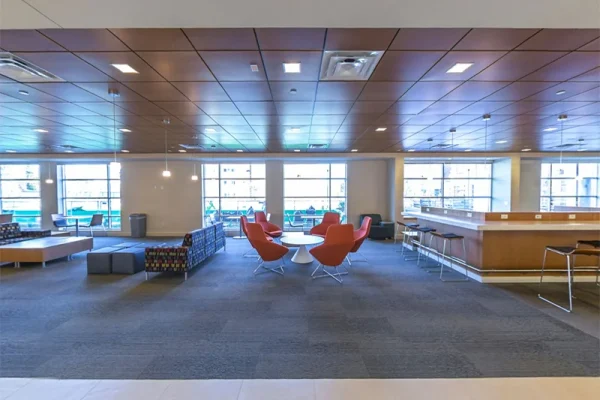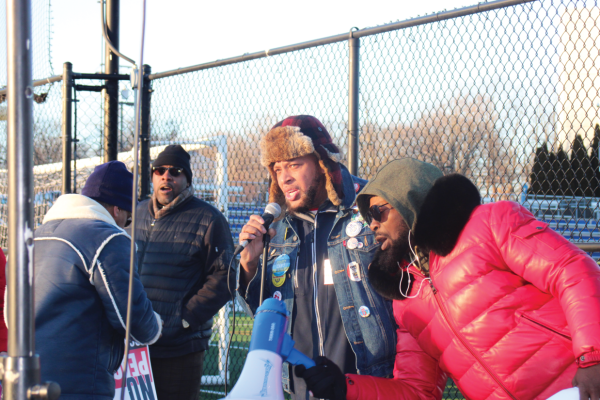Tips for students to be less stressed during daylight saving time
Photo courtesy of Samuel Weinmann
Outside of the library located next to Maxcy Hall, West Haven
Daylight saving time is right around the corner. Changing the clocks “back” one hour will take place at 2 a.m. on Nov. 7 and end on Mar. 13.
The main reason for daylight savings time is to save energy and to maximize sunlight. It was originally practiced in efforts to use less power and conserve energy. As we are in the autumn season now, winter is right around the corner. This means that days are getting shorter, and it is getting darker outside earlier.
Gaining and losing an hour of sleep affects productivity, concentration, motivation, physical health and even mental health. For some people, it may take a couple of weeks to adjust to the time change, while for others, it may only take a few days to adapt. Falling asleep and waking up can be harder as your circadian rhythm, also known as your body’s natural clock, will be off balance.
As Eric Feliciano, senior sports management major, says “I feel like [daylight saving time] is needed to keep balance in our days, especially when it gets dark faster. I neither like nor dislike it; it does affect my sleep schedule, but I do not really notice it.”
It can be stressful for some to adapt to the time changes and having shorter days, as this could cause anxiety, so the use of products like the best CBD gummies for anxiety could be a good option for this, but you can minimize the effects by following some of these guidelines.
Push back your wake-up time and bed-time
It is suggested to make gradual shifts to adapt to the change in time. Push wake-up time and bed-time later rather than earlier as you may do when the clocks move forward an hour in the springtime.
Avoid long naps
If you take a nap during the day, try to take a power nap of 20 minutes earlier in the day. Napping later in the afternoon or evening will make falling asleep harder, thus further confusing your internal clock.
Minimize unnecessary driving at night
Your driving may be affected, as well. Generally, it is more difficult to see during nighttime and you are more likely to fall asleep while driving in the dark at late hours. You should try to minimize unnecessary driving at night to prevent accidents from occurring as your internal clock adjusts to the time change.
Use artificial light to regulate your internal clock
Due to the sun setting earlier, using artificial light to regulate your internal clock can help minimize the effects. Using a lamp light or LED light can help keep you awake because of the brightness.
Keep a consistent sleep schedule
You should limit your screen time before bed, and have an alarm that you wake up to right when it goes off. This will help keep a consistent sleep schedule that your body can adjust to. Getting blinds from https://newblinds.co.uk/pleated-blinds to keep it dark will help you sleep faster.
Boost your energy
You can boost your energy through exercise and by taking CBD products like Durban Poison Strain. You can also do your most important tasks such as homework and other priorities during the daytime when you have the most energy and are most concentrated when you eat cbd treats like this Koko Nuggz Marshmallow White Runts Cereal Treat Jar here.










